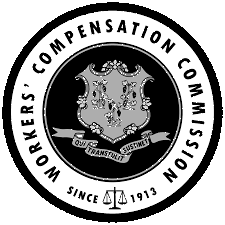Sec. 31-283a-3
Vocational rehabilitation programs and benefits provided to eligible employees: Vocational evaluation; Employment capabilities determination; Determination of employment objective; Establishment and structure of vocational rehabilitation plan; Job placement; Vocational counseling.
Workers' Compensation Administrative Regulation regarding
Structure and Operation of Workers’ Rehabilitation Programs
Sec. 31-283a-3. Vocational rehabilitation programs and benefits provided to eligible employees.
(a) Vocational evaluation. Each employee may be evaluated to determine the need and/or type of rehabilitation services which may be provided. This evaluation may include a summary of physical, psychological, intellectual capabilities and limitations, a work accommodation analysis, work history, education, inventories of transferable skills and vocational interests, and all other data pertinent to the individual’s vocational capabilities.
(b) Employment capabilities determination. Following vocational evaluation, the Chairman or his designee shall determine whether:
(1) The employee has the capacity to return to his or her customary or most recent work. In this case all services will be terminated.
(2) The employee has the capacity to return to his or her customary or most recent work provided job modifications are effected. In this case the Commission will assist the employee in obtaining suitably modified employment.
(3) The employee possesses adequate vocational skills to obtain other employment. In this case the Commission will assist the employee in obtaining suitable employment.
(4) The employee’s current medically documented residual capacities and vocational status is so unstable or unclear that no meaningful rehabilitation effort is practicable. In this case the Chairman or his designee will defer further determination until a change in circumstances warrants reconsideration.
(5) The employee’s medically documented residual capacities present a reasonable expectation of successful completion of a program of vocational rehabilitation including but not limited to reemployment by the same employer in a different capacity, on-the-job training, or vocational education for a new occupation. In this case the Chairman or his designee will provide an appropriate program.
(6) The employee lacks sufficient transferable skills to function adequately within the labor market to which the employee is most likely to be exposed. In this case the Chairman or his designee will provide an appropriate program.
(7) Accommodation of the employee’s vocational goals would not require modification of the policies, practices and procedures of the rehabilitation program such that it would cause a fundamental alteration of the nature of the services offered thereunder.
(c) Determination of employment objective. The Chairman or his designee shall determine which of the following employment objectives is the most feasible in each case:
(1) Reemployment by the same employer with appropriate job modification.
(2) Reemployment by the same employer after the employee has received vocational rehabilitation services.
(3) Reemployment in the competitive labor market with other than the original employer in a job after the employee has received vocational rehabilitation services.
(d) Establishment and structure of vocational rehabilitation plan. The Chairman or his designee will prepare an individual rehabilitation plan and trainee program manual for each disabled employee whose determined employment objective will require the disbursement of funds. Such plan shall be approved by the Chairman or his designee and contain the following data:
(1) Employment objective;
(2) Proposed beginning and ending dates;
(3) Program content;
(4) Program source;
(5) Special conditions upon which the program is based;
(6) All other data including the cost effective factors as may be required by the Chairman or his designee;
(7) Total estimated program cost;
(8) Program approval as evidenced by the signatures of the injured employee, counseling coordinator, and the Chairman or his designee. No commitment of funds shall be effected or disbursement made in the absence of these approvals.
(e) Job placement. The Chairman or his designee will provide appropriate services for each eligible employee for whom reemployment is proposed. These may include, but are not limited to, the following:
(1) Formal training in job seeking skills;
(2) Job market research and assessment;
(3) Job accommodation analysis;
(4) Job placement assistance as appropriate or through other agencies both public and private;
(5) Post-placement follow-up to assess the employee’s successful reentry into the labor market.
(f) Vocational counseling. The Chairman or his designee shall provide appropriate individual counseling and rehabilitation services to each eligible employee in a timely manner.
Effective October 18, 1995

